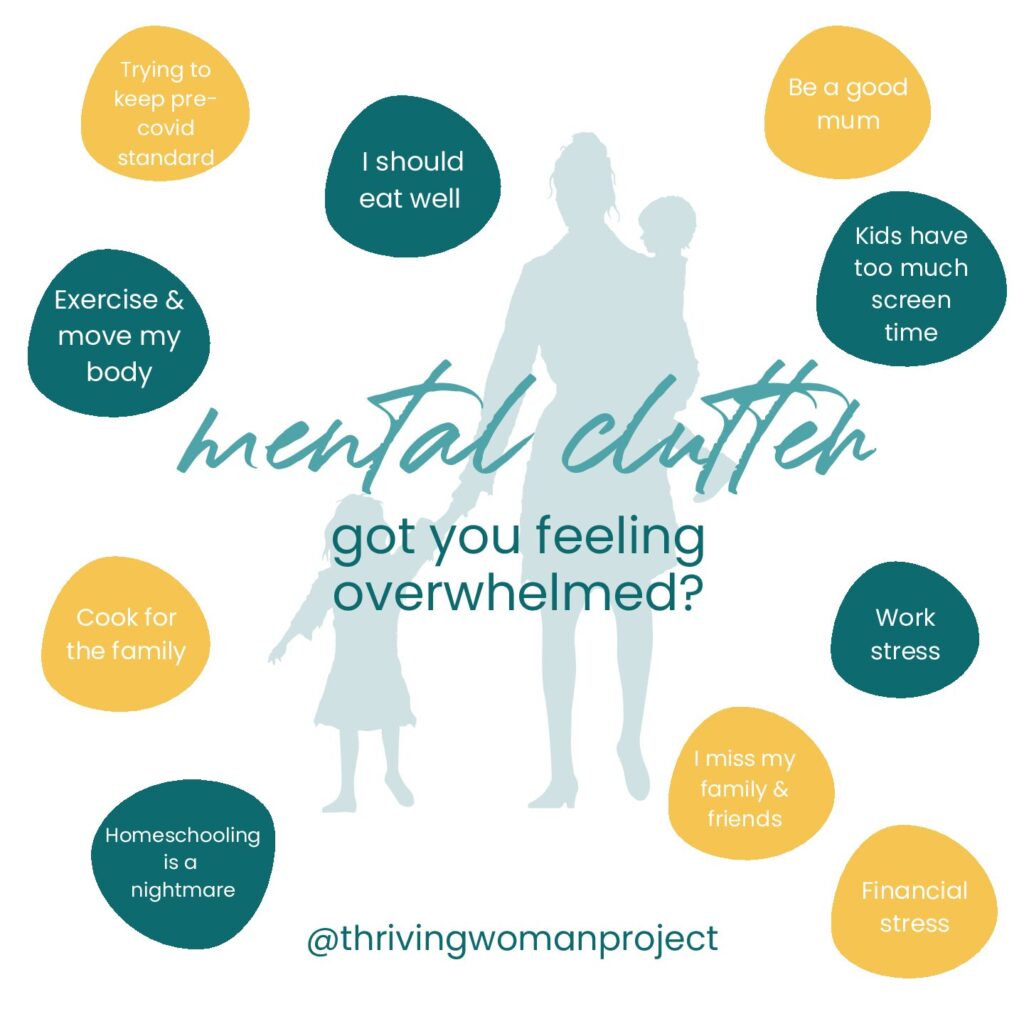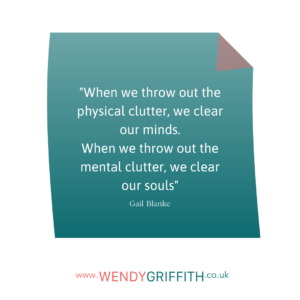Mental clutter is Real, and It’s Stressing Us Out! We’ve all been there—juggling a million things at once, trying to keep everything in order, and somehow still feeling like we’re constantly falling behind. Mental clutter isn’t just a minor inconvenience; it’s a big player in the stress and anxiety many of us feel every day. When our minds are overloaded, it affects our productivity, balance, and overall well-being so it’s extremely important to clear your mental clutter!
Interestingly, researchers at the Princeton University Neuroscience Institute found that physical clutter in our environment is directly linked to mental clutter. In other words, that messy desk or overflowing closet might be doing more than just bugging you—it could be holding you back from focusing on what really matters.
So how do we declutter our minds and our space?

Have you heard of the KonMarie method by Marie Kondo? This method tackles decluttering your stuff by category instead of by room-by-room. The principal is not about tidying, it is really about discarding of items that lack value and do not bring joy.
Marie Kondo’s 5 categories are:
- Clothes
- Books
- Papers
- Komono (a.k.a. miscellaneous items)
- Sentimental Items
If that task seems too big and too onerous because you have to commit and really commit (because otherwise clutter just moves from one room to the next right?)
Project 333
then perhaps start with your wardrobe and test out Project 333 (it’s a book). Wear just 33 items for 3 months and discover how liberating “less is more” really is. Live simply, remove the worry about what you’re going to wear and thrive.
Commit to decluttering
And block out time to do it. Even if you choose to do one room – your bedroom, for example. For me, my bedroom is my sanctuary. It’s where I rest, recoup and can have peace and quiet. If my room is cluttered, it definitely affects my mind. Find your sanctuary or make a sanctuary in your home or office which is clutter free, this will ultimately help clear your mental clutter.
Time Management
One of the biggest sources of stress is feeling like there just aren’t enough hours in the day. Effective time management can be a game changer in reducing stress. Start by prioritising your tasks—identify what truly needs your attention and what can wait. Use digital tools like planners, calendars, and task management apps to keep everything organised. And don’t forget to set realistic goals; sometimes we put too much on our plates and end up feeling overwhelmed. Breaking larger tasks into smaller, manageable steps can make all the difference.
Take a Tech Detox
Let’s face it, we’re all a little too attached to our devices. While technology helps keep us connected, it can also be a major stressor. Constant notifications, emails, and social media updates can keep our minds on overdrive. Incorporate regular tech detoxes into your routine—try turning off notifications, setting specific times to check emails, or even going screen-free for a few hours a day. Unplugging can help clear your mind, improve mental clarity, and reduce the stress that comes from feeling like you always need to be “on.”
Be in the moment
One of the best ways to clear mental clutter is to simply be present. Whatever task you’re tackling, give it your full attention. Whether it’s work, spending time with your kids, or even just enjoying a quiet cup of tea, being mindful can help clear your mind and reduce stress.
Embrace Mindfulness and Meditation
Incorporating mindfulness and meditation into your daily routine can be a powerful way to manage stress and improve focus. Even just a few minutes of deep breathing or guided meditation can make a big difference. Start with simple practices like focusing on your breath, doing a body scan, or practicing gratitude. Apps like Headspace or Calm offer quick, guided sessions that can easily fit into a busy schedule. The key is to find what works for you and make it a regular part of your day.

Emotional decluttering
I know what you’re thinking—what on earth is emotional decluttering? As women, and especially as moms, we’re pros at pushing our feelings aside to prioritize everyone else. But bottling up emotions only adds to our stress. Emotional decluttering doesn’t mean you have to unpack every feeling deeply, but it does involve acknowledging your emotions, understanding what triggers them, and giving yourself permission to feel them.
If this sounds daunting, start small: identify what you’re feeling, acknowledge it, and let it be. It’s surprising how liberating this can be. And if you need more support, don’t hesitate to reach out to friends, family, or even professionals. Your emotional well-being is just as important as everything else on your to-do list.
The Power of a Gratitude Journal
Finally, one practice that’s helped me immensely is keeping a gratitude journal. It’s a simple yet powerful way to shift your focus from what’s cluttering your mind to what truly matters. Reflecting on the positive moments each day can bring peace and help ground you, no matter how busy life gets.
Now remember, it’s not about doing everything perfectly but taking small, manageable steps toward a more balanced and peaceful life!